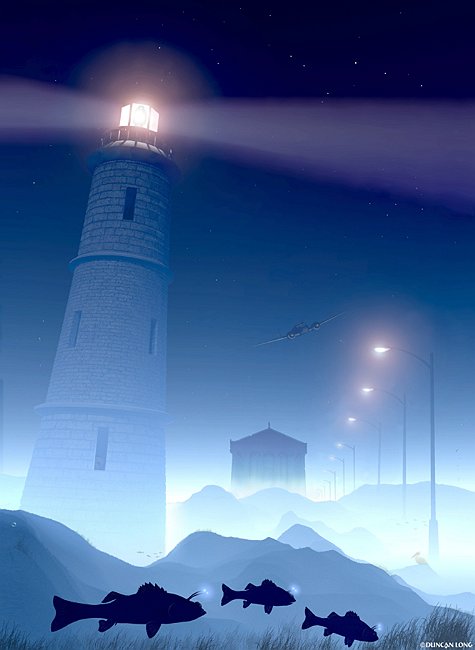Books: Back to the Future
filed in Publishing Industry on Aug.30, 2010

History suggests that books as we have seen them over the last few hundreds of years might soon become an endangered species, as least as far as the popular best-sellers of the last century are concerned.
This is no surprise to those who consider the history of various entertainment media.
Just this week, according to news accounts, Blockbuster is likely to go bankrupt; the days of the local video chain rental store seem numbered. Netflix, Hulu, and similar businesses seem to have beaten them out.
This is just another verse to a tune played many times before.
The LP recording dealt a death knell to the 78s. The CD brought an end to the LP (for everyone except collectors and connoisseurs, at least).
Radio, CDs, and finally MP3s and iTunes pretty much have made the record store a thing of the past.
Recordings of all sorts have done away with many city bands and especially orchestras, especially in smaller municipalities.
The movie theater destroyed vaudeville and traveling stage troop.
The video store, file sharing, Cable TV, and now Netflix and its peers are threatening to close movie theaters. (And oddly enough, the mercury vapor light killed off the drive-in movie theater a decades ago.)
Cable news and the Internet have just about broken the back of newspapers, news magazines, and even literary magazines.
While technologies can peacefully coincide, too often the new annihilates an older form of entertainment.
So what effect will ebooks, downloadable books, and cheap ebook readers have on printed books and the bookstores selling them?
And what about the competition of online giants like Amazon.com?
Will we see the local bookstore go the way of Blockbuster?
As far as that goes, will paper books become something purchased only by collectors and connoisseurs, something like LP recordings are today?
It’s possible. Perhaps even likely, especially in the case of mass-produced books that are expensive to ship, and which still are expected to yield a retailer a full refund when covers are ripped off and returned to the publisher. Can such a system compete again streams of electrons delivered almost instantly, for a lower price, over the Internet or phone line?
It sounds dire. It likely will be for many selling books today.
Yet for those businessmen willing to cater to niche markets, there may still be ways to make money, or even make more money selling books, doing their work in labor-intensive, micro printing houses.
This may be possible since there’s one big difference between an LP or DVD/Blueray and similar products and books: There’s a lot more to a book, especially hardbacks, and quite often that means the profit margin for those selling a book can be considerably higher.
Or at least a large, hardbound book offers that potential.
Even today the price of a book can go right through the roof if it’s handmade, leather-bound, or autographed. Numbered, limited editions and “artist’s books” of bound sketches or prints can fetch really serious prices, and those marketing such books regularly have all the copies of a print run sold before even going to print.
It may be that the future for those successfully selling physical books will be to carve out a niche market of collectible books, antique books, and other rarities.
In other words, the future of books may be a return to the past, creating a carefully crafted product not unlike Guttenberg’s with his first moveable, metal-type printing press.
Or I may be totally wrong. Perhaps the book as we know it today will survive the onslaught of new technology just as the radio has managed to coexist with TV.
Perhaps.
I hope so.
Time will tell.
=====================
Duncan Long has been in the book industry for several decades, currently working as a freelance book illustrator for HarperCollins, PS Publishing, Pocket Books, Solomon Press, Fort Ross, and many other publishers and self-publishing authors. See his book illustrations at: http://DuncanLong.com/art.html
=====================